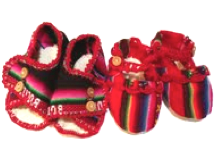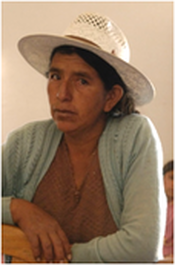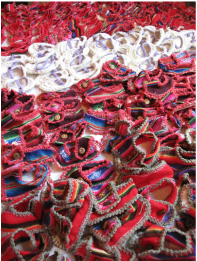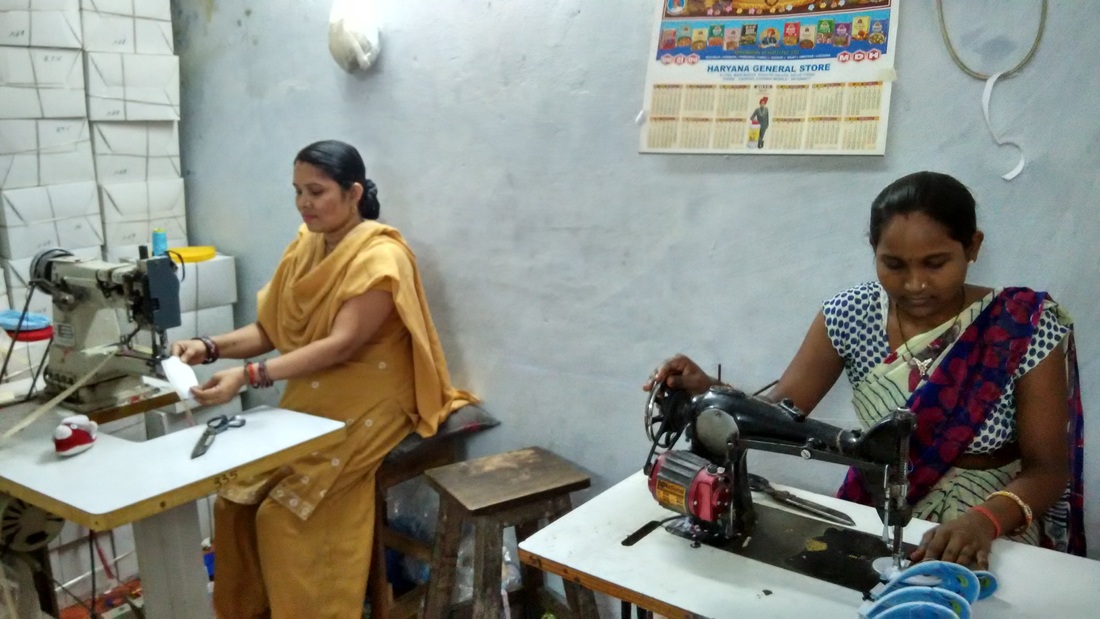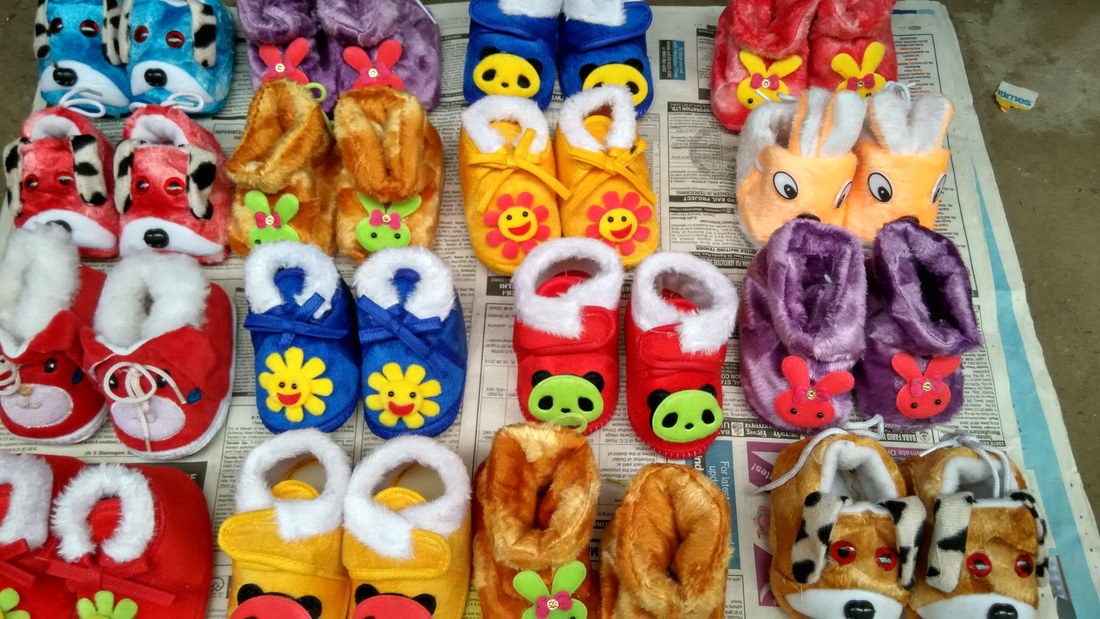Empower People, Delhi and Haryana, India empowerpeople.org.in
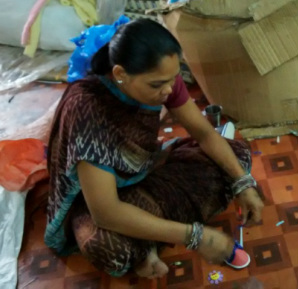
Empower People began in 1999 as an educational initiative called Career Development Corner (CDC). In 2006 the organization became EMPOWER PEOPLE with its mission singularly focused on rescue and empowerment of girls and women who had been sold as brides. The young women were brought to Haryana-Punjab as sex slaves, where they are called “Paro” or “Molki”. In addition to being sexually abused, these women are used as farm workers and resold to other men. Empower People works to protect, support and organize trafficked women and girls from the vicious cycle of trafficking using a three-pronged strategy of prevention, intervention, and rehabilitation. EP equips the women with skills to earn a livelihood by other means — for example by sewing, as shown in the photos.
The National Crime Record Bureau reports that more than 22,000 girls were kidnapped for marriage in 2012, with organized trafficking rackets operating in several North Indian states. To end bride trafficking, Empower People actively engages religious/ethnic leaders, community members, and other stakeholders.
Read more about Empower People and founder Shafiqur R. Khan in The Guardian.
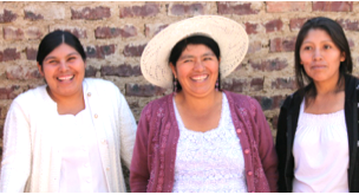
GREENOLA actively supports 5 Fair Trade producer groups in Bolivia, each group is very unique in itself.
Our Third World Producers are worker-owned sewing cooperatives located near the Bolivian city of Cochabamba. The majority of our entrepreneurs are women. Back in 2004, we provided an interest-free startup loan and vocational training for this project. This loan was used for sewing machines, equipment and a guarantee deposit for the work space. Our Bolivian staff, both professional and volunteer, offer on-going support for the cooperatives, empowering the members to gain financial sustainability for their families.
We work directly with our producers, providing training to the artisans and their cooperatives so they are able to improve on their skills. This in return strengthens their business and social impact, both in their communities and worldwide. In most cases, we make a 50% advance on orders, helping our producers to finance Fair Trade. We take a slower approach to production, supporting handmade items, unlike most of products dominating the fashion industry.
WARMIS COOPERATIVE, Greenola Style, Cochabamba, Bolivia
The Warmis Cooperative makes baby booties for the Gendercide Awareness Project. Women are members on an as-needed basis. They attend meetings when they are in need of work, and then often jump out to do other jobs. At this time, there are about 60 women in the Warmis community, with about 12 who work full time.
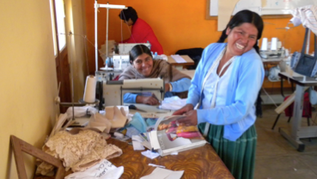
$2.50 to these women is a good wage. Often they make less than that per day in their communities doing other things. They have the opportunity to make more than $2.50 a day with this job, as they are paid per item. In Bolivia, you can get ingredients to purchase enough starches for one meal with $2.50 (their meals are starch heavy). The average wage in Bolivia is .22 cents per hour of HARD labor. This is a significant difference, and it is an opportunity to do work that is easier on the body, that they can do from home while watching children, and at their own will.
